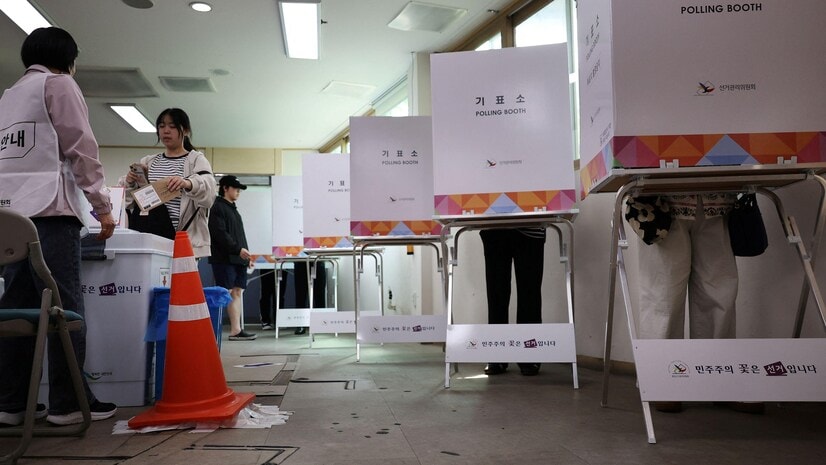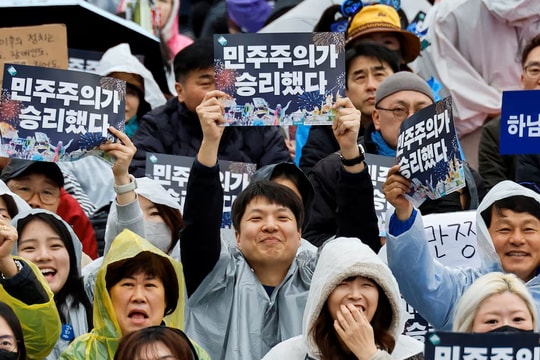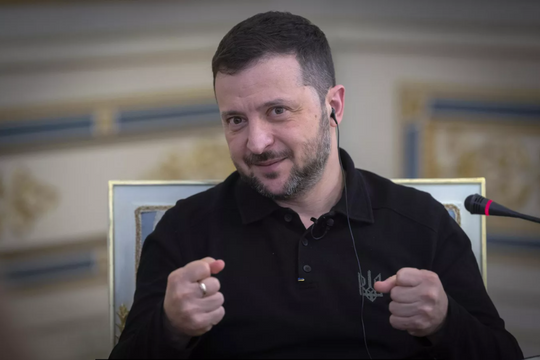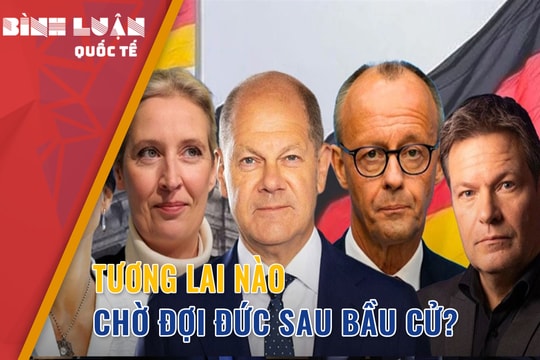South Korea holds early elections: Who will succeed Yoon Suk Yeol?
After months of political turmoil, South Korea will hold a snap presidential election on June 3 to choose a successor to Yoon Suk Yeol, the conservative leader who was ousted after a shocking martial law decree last December.

Recent opinion polls show liberal candidate Lee Jae-myung with a large lead. Mr. Lee is expected to win on the wave of public disappointment over Mr. Yoon's martial law case.
Meanwhile, the main conservative candidate, Kim Moon Soo, is trying to make a comeback. However, observers say that Mr. Kim's refusal to directly criticize Mr. Yoon has made it difficult for him to narrow the gap with his opponent, Mr. Lee.
The winner of the election will be sworn in as president on June 4, without the usual two-month transition period. The new South Korean leader will face a number of urgent tasks, including trying to heal deep divisions at home over Yoon's actions, as well as focusing on US President Donald Trump's "America First" policy and North Korea's nuclear program.
Who are the main candidates?
Mr. Lee Jae-myung, representing the liberal Democratic Party (DP), is currently the most promising candidate.
Mr. Lee narrowly lost to Mr. Yoon in the 2022 election and was the front-runner in two parliamentary votes to overturn the martial law decree and impeach Mr. Yoon, before the Constitutional Court formally removed Mr. Yoon from office last April.
Mr. Lee's strong criticism of conservatives and calls for punishment of those involved in the imposition of martial law have raised concerns among the opposition that his victory could further polarize South Korean society.
Kim Moon Soo, a former labor minister under Mr. Yoon and a candidate for the ruling People’s Power Party (PPP), faces an uphill battle. His opposition to Mr. Yoon’s impeachment and reluctance to criticize the disgraced leader are believed to have cost him support from moderate voters, according to analysts.
Four other politicians are also running, including Lee Jun-seok of the conservative New Reform Party. Lee Jun-seok flatly rejected Kim Moon Soo's proposal to merge candidates to avoid dividing the conservative vote.
Key issues of the election
During this election campaign, candidates made damaging statements, made personal attacks, and even used sexually sensitive language without presenting a clear long-term vision for South Korea.
In a televised debate last week, Mr. Lee Jae-myung called Mr. Kim Moon Soo a "clone of Yoon Suk Yeol," while Mr. Kim accused Mr. Lee of being "a harbinger of a monstrous and dictatorial politics."
Unlike in previous elections, North Korea's nuclear program did not emerge as a hot topic, suggesting that most candidates share the view that South Korea has few immediate measures to persuade North Korea to give up its nuclear weapons.
Dealing with US President Donald Trump's tough tariff policies has also not been a major divisive issue among candidates during the campaign.
Instead, Mr. Kim Moon Soo focused on attacking Mr. Lee Jae-myung, describing him as a dangerous leader who was capable of abusing power by placing the judiciary under his control and amending the law to prevent criminal trials involving himself.
For his part, Mr. Lee Jae-myung repeatedly questioned Mr. Kim's connection with former President Yoon.
Challenges awaiting the new leader
South Korea’s new president will have little time to negotiate with the United States before July 9, when President Trump’s 90-day global tariff suspension expires, potentially exposing South Korean products to 25% tariffs. Although a US federal court recently ruled that Trump lacked the authority to impose the tariffs, the White House has appealed, leaving the long-term outcome unclear.
South Korea's outgoing administration is trying to finalize a comprehensive "package" deal with the United States by early July to minimize the negative impact on the country's trade-dependent economy.
Lee Jae-myung has accused government officials of rushing into negotiations for short-term political gain and said placing too much emphasis on an early deal with Washington would not serve the national interest.
In contrast, Mr. Kim Moon Soo announced that he would prioritize a meeting with President Trump as soon as possible to resolve trade issues.
The next government in Seoul may also struggle to ease security tensions over North Korea's advanced nuclear weapons program, which has been complicated by Pyongyang's support for Russia's war in Ukraine.
Lee Jae-myung expressed his willingness to improve relations with North Korea but acknowledged that a summit with North Korean leader Kim Jong Un was unlikely soon. He said he would support President Trump's efforts to resume nuclear diplomacy with Pyongyang.
Meanwhile, Mr. Kim Moon Soo promised to strengthen South Korea's military capabilities and win stronger security support from the United States, suggesting he would maintain Mr. Yoon's hard-line approach toward North Korea.
Can the new government ease the divisions?
The most pressing domestic problem facing the new president will be a deeply divided country, where millions have taken to the streets for months to protest for or against Mr. Yoon.
Former President Yoon once called Mr. Lee’s party “anti-state,” accusing it of abusing its legislative majority to thwart his agenda. He also promoted unproven conspiracy theories that liberals benefited from election fraud.
Lee Jae-myung has offered a message of unity and pledged not to seek political retaliation against his opponents if elected. But critics are skeptical, fearing he could use investigations into Yoon's martial law decree as a tool to suppress his opponents.
Mr Yoon's legal case is likely to overshadow the first months of the new government in Seoul, as the former president continues to stand trial on serious rebellion charges, which could carry the death penalty or life in prison.






